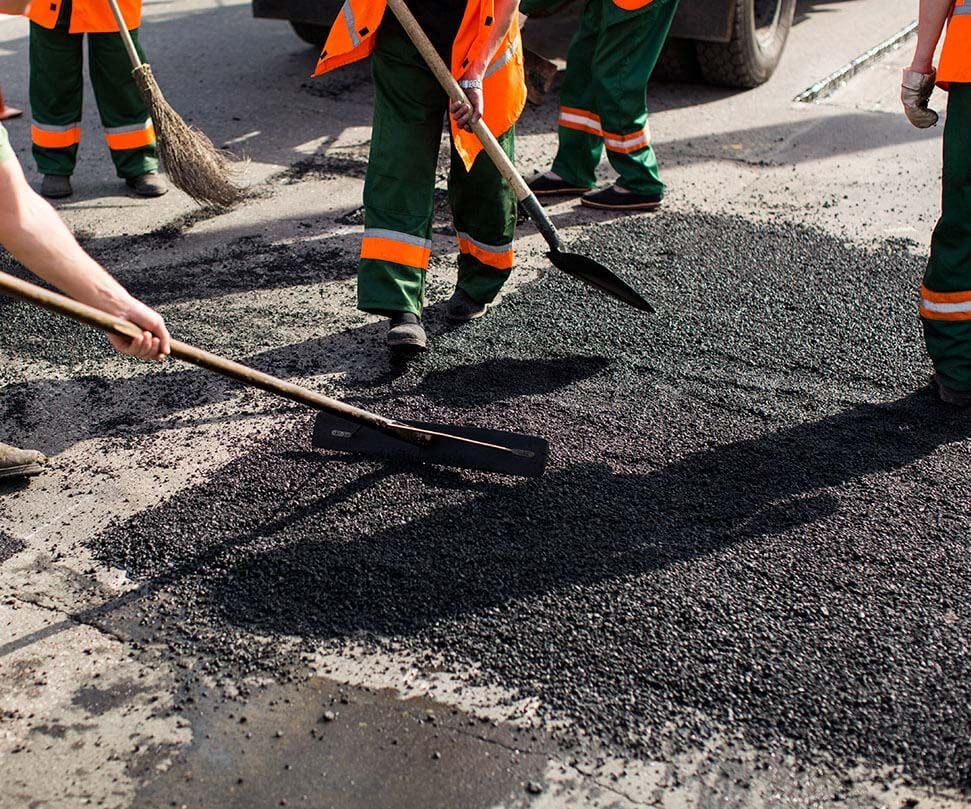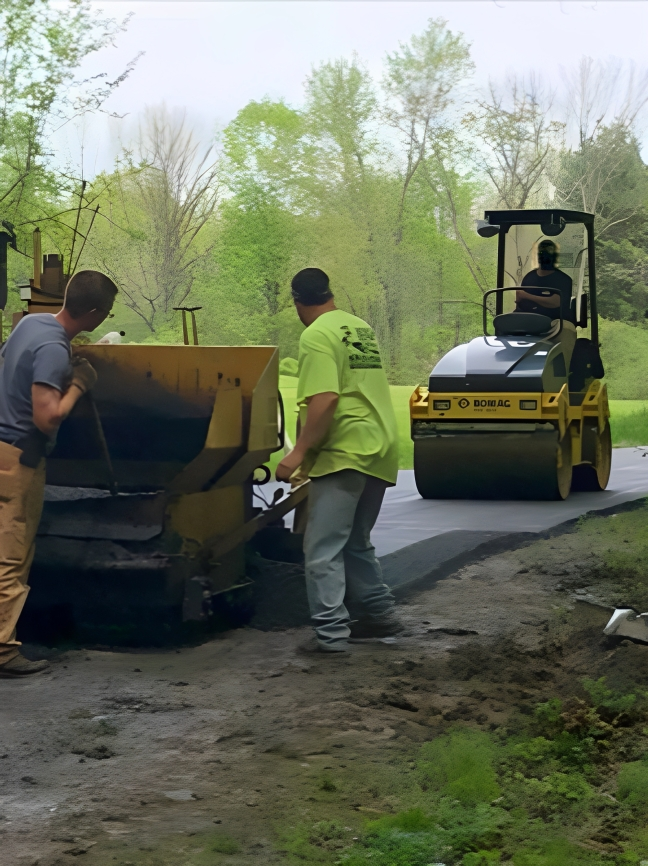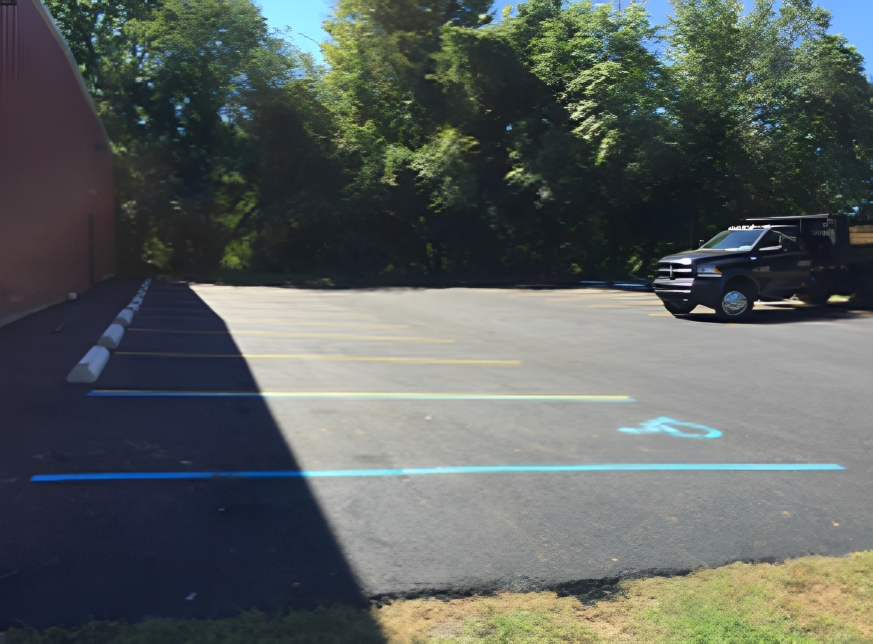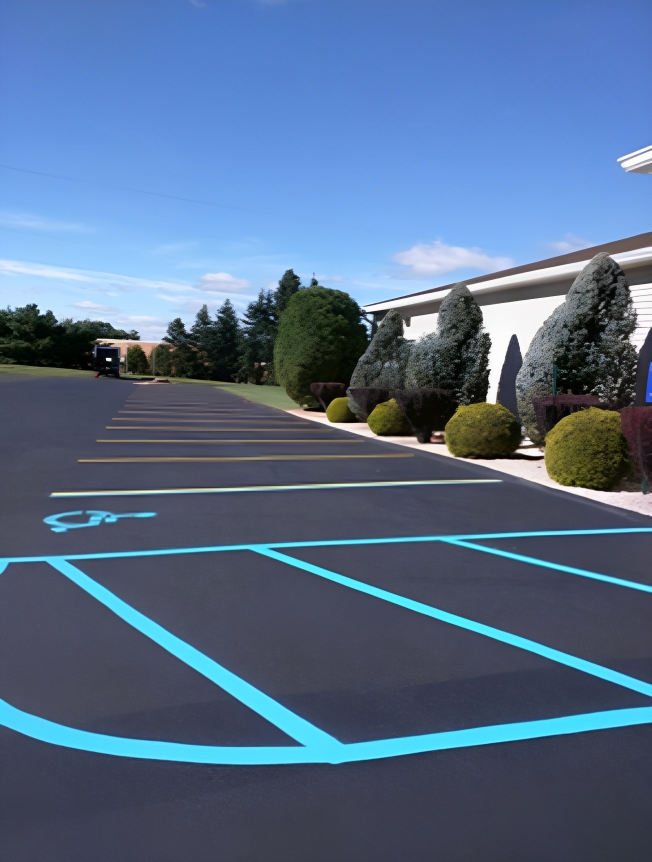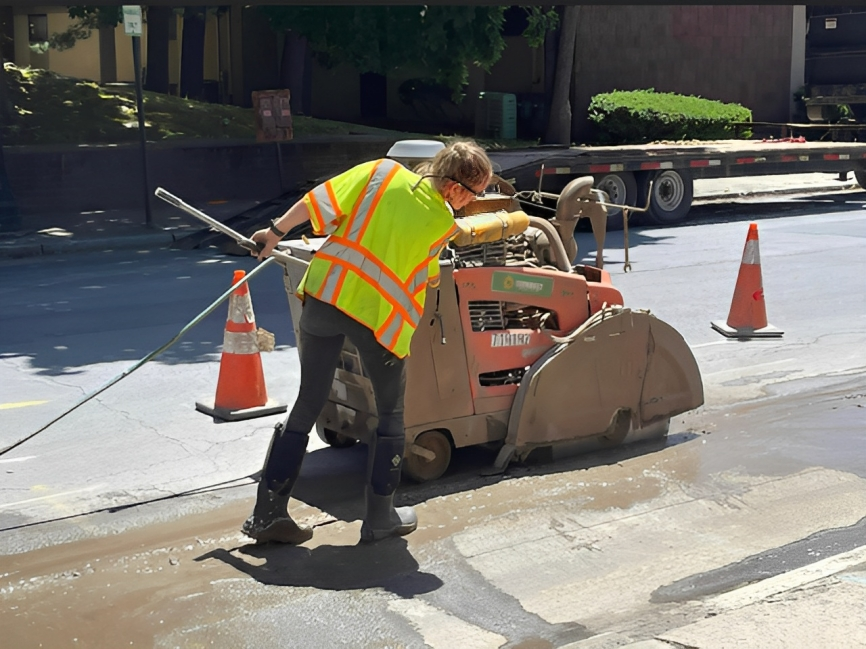Asphalt vs. Other Driveway Materials: A Comprehensive Guide for Homeowners

Welcome, homeowners! If you're contemplating a new driveway, you're probably weighing options like asphalt, concrete, pavers, and gravel. This choice isn't just about aesthetics; it's a long-term investment in your property. In this guide, we delve into each material, comparing their strengths and weaknesses. Our goal? To help you make an informed decision that suits your budget, climate, and style.
Understanding Asphalt Driveways
Asphalt driveways are a common sight in many neighborhoods, offering a blend of durability and cost-effectiveness. This material, a mixture of aggregates like stone and sand bound with asphalt cement, provides a reliable surface for your driveway. Here's an in-depth look:
Advantages of Asphalt
- Cost-Effective: Asphalt is generally more affordable than its counterparts. This makes it an excellent choice for larger driveways where cost can quickly add up.
- Durability: It's designed to withstand significant wear and tear. Whether it's heavy vehicles or playful kids, asphalt can take it.
- Easy to Repair: Small damages in asphalt can be easily fixed, often as a DIY project. This means lower long-term maintenance costs.
Disadvantages of Asphalt
- Weather Sensitivity: Extreme temperatures can affect asphalt. In hot climates, it can become soft, while in cold weather, it's prone to cracking.
- Maintenance Needs: To maintain its appearance and longevity, asphalt requires periodic sealcoating. This adds to the overall upkeep cost over the years.
Notably, studies show that a well-maintained asphalt driveway can serve you well for about 20 years, as highlighted in a report by the National Asphalt Pavement Association.
Concrete Driveways
Concrete driveways are a popular choice for their blend of durability and aesthetic versatility. This material, a mixture of cement, water, sand, and gravel, creates a strong and customizable surface for your home. Let’s explore what concrete offers:
Pros of Concrete
- Longevity: Concrete driveways can last 30 years or more, making them a great long-term investment.
- Design Flexibility: Whether you prefer a simple, elegant look or intricate patterns, concrete offers a variety of aesthetic options, including stamping and coloring.
- Low Maintenance: Unlike asphalt, concrete doesn't require frequent resealing, saving time and effort in upkeep.
Cons of Concrete
- Higher Initial Cost: Concrete tends to be more expensive upfront than asphalt, which might be a consideration for budget-conscious homeowners.
- Susceptibility to Cracks: Temperature fluctuations and ground movement can cause concrete to crack, requiring repairs.
- Stain Prone: Concrete can be susceptible to stains from oil, grease, and other materials, which might necessitate extra cleaning efforts.
A study by the American Concrete Institute suggests that homeowners often choose concrete for its low maintenance and longevity, despite the higher initial cost. This makes it a worthwhile consideration for those planning long-term.
Paver Driveways
Paver driveways are like the custom-made suits of the driveway world – they offer elegance and personalization. Made from various materials like stone, brick, or concrete, pavers allow for a unique and stylish driveway design. Let's delve into the details:
Pros of Pavers
- Aesthetic Appeal: Pavers offer a range of colors, shapes, and styles, providing a high-end, custom look for your property.
- Durability: Pavers are incredibly sturdy and can handle heavy loads without cracking, a feature especially beneficial in areas with extreme weather.
- Easy to Repair: Individual pavers can be replaced if damaged, making repairs less noticeable and more cost-effective over time.
Cons of Pavers
- Installation Complexity: Laying pavers is more labor-intensive than pouring concrete or laying asphalt, often leading to higher installation costs.
- Higher Cost: The materials and labor involved in installing paver driveways generally make them more expensive than other options.
- Weed Growth: The gaps between pavers can allow for weed growth, which requires regular maintenance to keep the driveway looking pristine.
The latest trends in paver designs, according to recent design magazines, show a growing preference for eco-friendly and permeable pavers, highlighting a shift towards sustainable and functional aesthetics.
Gravel Driveways
Gravel driveways bring a rustic charm to any property. Comprising loose aggregates like crushed stone or pebbles, they're a more natural-looking option. Here’s what gravel driveways have to offer:
Pros of Gravel
- Affordability: Gravel is one of the most budget-friendly driveway materials. It's ideal for long driveways where cost can become a significant factor.
- Permeability: Gravel allows water to drain through, reducing runoff and the risk of flooding.
- Easy Installation: Laying a gravel driveway is a straightforward process, potentially lowering installation costs.
Cons of Gravel
- Regular Maintenance: Gravel driveways require periodic raking and replenishment to maintain their appearance and functionality.
- Less Durability: While charming, gravel isn’t as durable as other materials. It can spread and become uneven over time.
- Snow and Ice Removal Challenges: In snowy regions, clearing a gravel driveway can be tricky, as plows and shovels can displace the gravel.
Statistics on the maintenance needs and lifespan of gravel driveways, as per recent studies, suggest that while they are affordable, the ongoing maintenance can add up over time, especially in harsh weather conditions.
Comparative Analysis
Navigating the pros and cons of different driveway materials is key to making an informed decision. Let's put asphalt, concrete, pavers, and gravel side by side for a clearer picture.
- Cost Comparison: Asphalt generally offers the lowest initial cost, but remember, maintenance can add up. Concrete, while pricier upfront, balances out with its longevity and low maintenance. Pavers, though on the higher end, offer unmatched aesthetic value and durability. Gravel is the most budget-friendly, but regular upkeep is a factor.
- Durability and Maintenance: Asphalt and concrete are neck and neck in durability, each with unique maintenance needs. Pavers offer exceptional durability with easier, albeit more frequent, repairs. Gravel, while charming, requires the most upkeep to maintain its condition.
- Environmental Impact: Gravel scores high for its permeability, reducing runoff. Concrete and pavers offer sustainable options like permeable and recycled materials. Asphalt, though less eco-friendly, is 100% recyclable.
- Suitability for Climates: Asphalt performs well in colder climates but can soften in extreme heat. Concrete withstands heat better but can crack in freezing temperatures. Pavers handle temperature shifts well. Gravel is versatile but challenging in snow.
This analysis helps you weigh the factors most important to you, whether it's cost, maintenance, environment, or climate suitability.
Making the Right Choice
Deciding on the right driveway material is more than just a practical decision; it's about matching your lifestyle, climate, and aesthetic preferences. Here are some key considerations:
- Factor in Your Climate: If you live in an area with extreme weather, choose a material that can withstand those conditions. For instance, asphalt is great for cold climates, while concrete is more suited for warmer areas.
- Consider Your Budget: While initial costs are important, think long-term. A cheaper option now might mean more maintenance later. Balance your upfront budget with potential future expenses.
- Think About Property Aesthetics: Your driveway contributes to your home's curb appeal. Whether you prefer a modern look with concrete or a classic feel with pavers, choose a material that complements your home’s style.
Remember, professional installation is key. A well-installed driveway lasts longer and performs better, no matter the material. Consulting with professionals can provide valuable insight into what works best for your specific situation.
Studies on material sustainability and homeowner preferences indicate a trend towards eco-friendly and durable options, making these factors increasingly important in the decision-making process.
Professional Help - NEPA Asphalt
When it comes to installing or maintaining your driveway, choosing the right contractor is as crucial as selecting the material. In the Jefferson Township and Scranton areas, NEPA Asphalt stands out as a top choice. Here’s why they could be your go-to for driveway needs:
NEPA Asphalt Services
- Asphalt Contractor: Specializing in both installation and maintenance, they ensure your asphalt driveway is top-notch from start to finish.
- Block Topping: Ideal for giving your driveway a smooth and durable surface.
- Parking Lot Services: Whether it's a small business or a large complex, NEPA Asphalt handles parking lot installations and upkeep with ease.
- Driveway Contractor: Expertise in a range of driveway materials, ensuring a professional and high-quality finish.
- Asphalt Resurfacing: Perfect for reviving an old driveway and extending its life.
- Utility Contractor: Beyond driveways, they handle essential utility-related groundwork.
- Snow Removal: A crucial service in regions with heavy snowfall, keeping your driveway safe and accessible in winter.
- Excavation and Demolition: Comprehensive services for any site preparation or clearing needs.
Why Choose NEPA Asphalt?
Their reputation for quality workmanship and reliable service makes them a standout choice in the Jefferson Township and Scranton areas. Whether it’s a new driveway installation, a parking lot project, or even snow removal, NEPA Asphalt has the expertise and equipment to deliver excellent results.
Considering a driveway project? NEPA Asphalt is worth a call for their professional advice and top-notch services.
Our Services
Contact Info
Phone: (570) 351-1568
Jefferson Township, PA
Business Hours:
- Mon - Fri
- -
- Sat - Sun
- Appointment Only
Emergency Services Available





